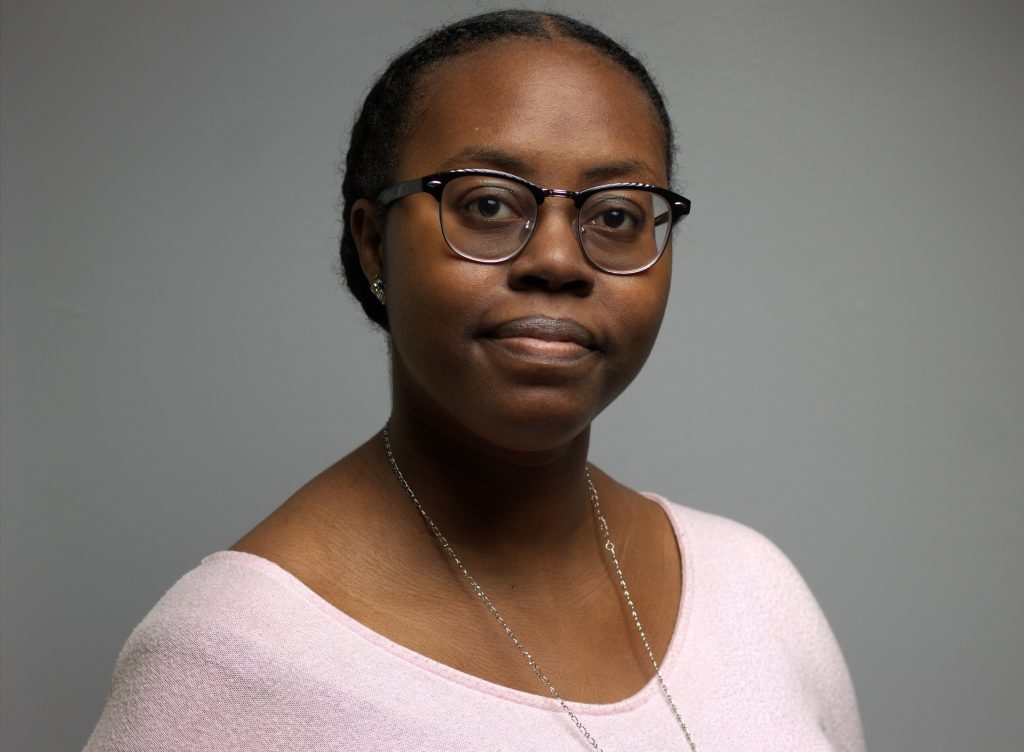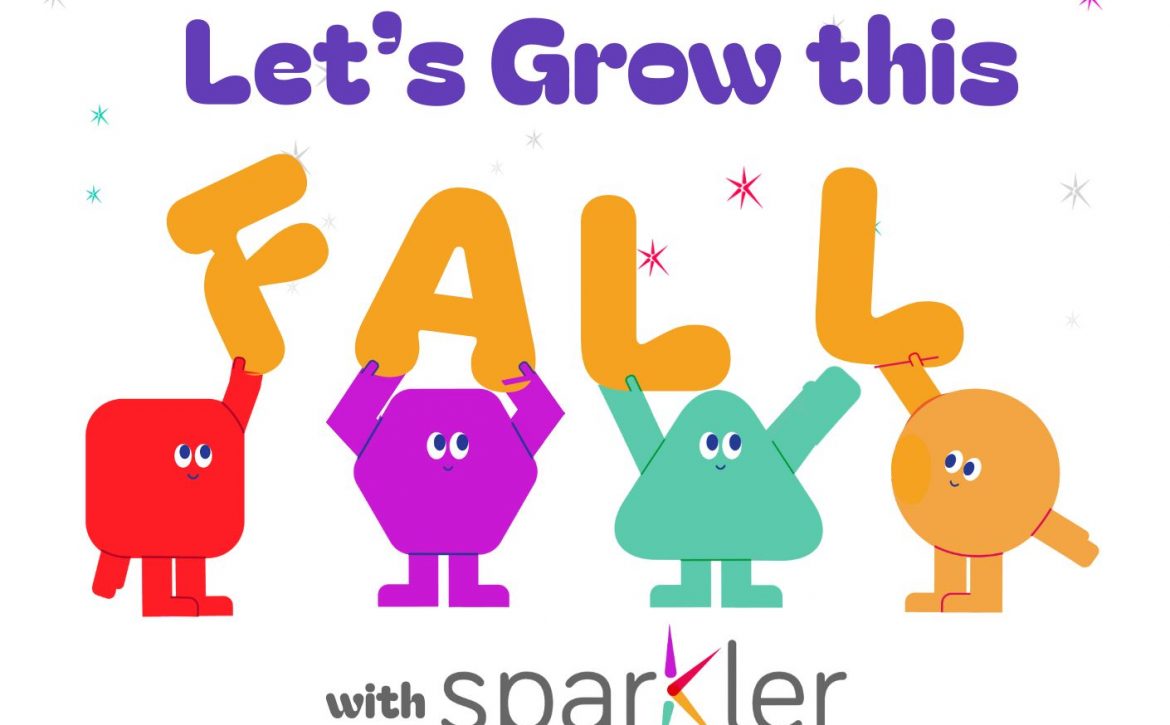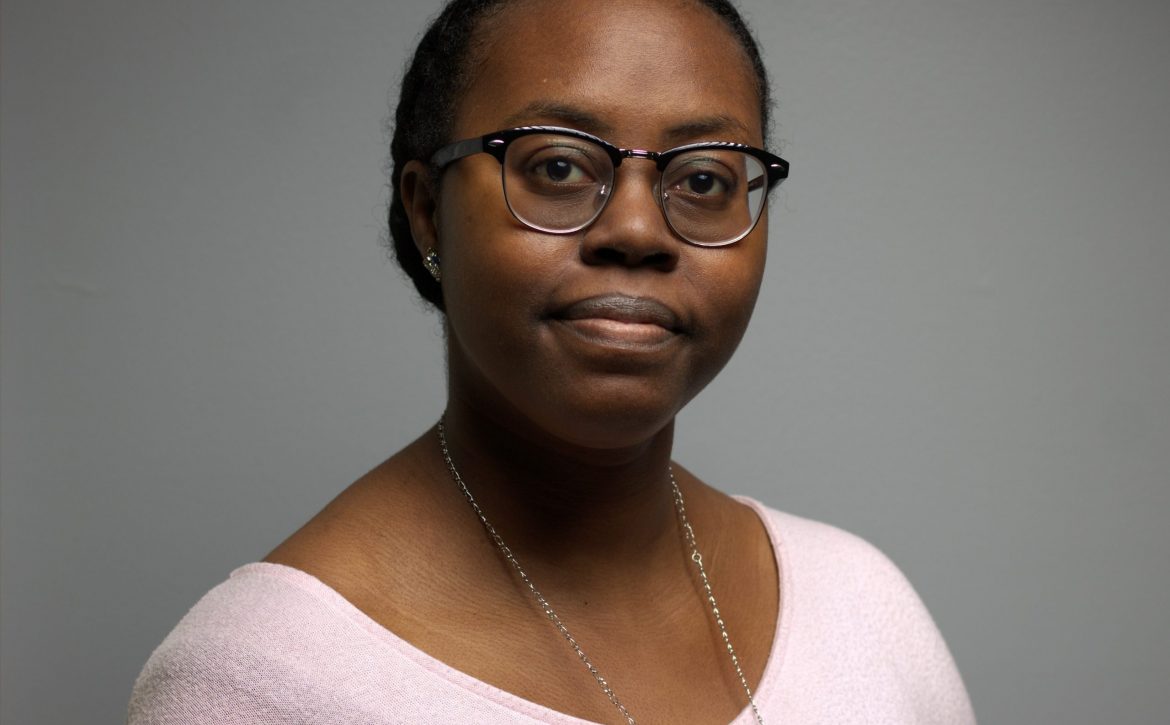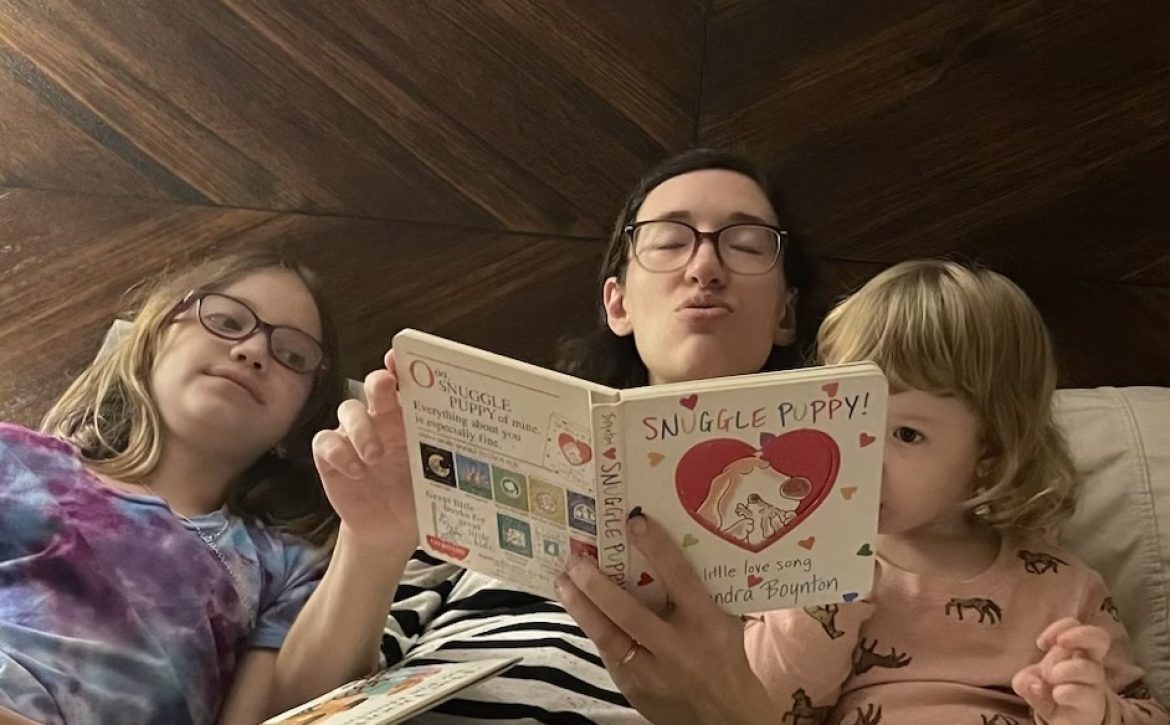Let’s Grow this Fall with Sparkler
Fall is full of opportunities to grow children’s hearts, words, minds, and bodies. Sparkler offers dozens of way’s to learn through play with young children this season. Here’s a new activity booklet that families can use to prompt play-based learning this season. We explore pumpkins, apples, pinecones, and more! Find even more in your Sparkler app.

Earlier this year, Sparkler and the CT State Library created CT Ready to Read with Sparkler, a literacy curriculum to use at library storytimes to grow early literacy skills. In this Q&A, Sparkler’s executive director, Julia Levy, chats with Kymberlee Powe, the Children and Young Adult Consultant with the Connecticut State Library, who partnered with Sparkler to create the new curriculum. Kym specializes in youth services and literary equity.
CT Ready to Read with Sparkler is a curriculum based off of the Every Child Ready to Read initiative that was started by the Public Library Association and the Association for Library Services to Children. It’s a tool to help librarians and other folks who operate in the storytime space to embed early literacy skills into storytimes and activities that they are offering for youth and families.
A lot of public librarians love a theme: They love fall, they love colors, they love bears. What started as a joke…became the ultimate theme of the curriculum, and it demonstrates to librarians how they are able to hold true to themes, and still embed early literacy skills like phonemic awareness or vocabulary into their storytime curriculums.
Librarians may fall into the habit of picking the theme, selecting some books that are age-appropriate and fun, and finding a craft that’s age appropriate. Through this process, we might accidentally enforce some of those early literacy skills, but what we want to do is make sure those skills are enforced with intentionality.
Narrative skills are always very interesting to me. I think that’s because — as a child of the 90s — we did a lot of pretend play. Before the time of TikTok and tablets and all of that, there was a lot of pretend play, which really strengthens narrative skills. I just want to see those skills remain as strong in this generation of youth and going forward.
Brown Bear, Brown Bear — it’s a classic.
I’d go with a whole season. We could talk about caterpillars to butterflies, and animals coming out of hibernation and flowers and bugs and dirt. Never gets old!
They can go to the Sparkler website and they can find it there or they can go to the Children and Young Adult Lit Guides at the CT State Library and access it there or reach out to me. It’s a small state, and everyone’s got my email! They can easily begin to make small, incremental changes to their storytimes for higher impact with their children and families.

Sparkler chatted with Jordan Dospil, who is a Senior Content Specialist at the National Center for Families Learning (NCFL), where she creates curricula for the early childhood space. She has a background as an early childhood educator. Sparkler worked together with Jordan and the team at NCFL to create Play With Purpose, a playgroup program for families with young children.
I think of play very broadly. For me, play is led by the child, keeps their interest, and it’s FUN.
Yes! Toys can be great, but I think they are completely optional for play. As far as that goes, I think play could even be something that never leaves our heads — that is completely imaginary. My older kids are big daydreamers and that can be a wonderful way to play.
For so many reasons, but the top ones for me are learning and imagining. Imagining is the key to creative problem-solving that we as humans will always need. Aside from that, though, I think it’s essential for us to give kids the time and space to be kids and play is a huge part of that.
My favorite ways to read with young children are to use voices and sound effects and to get them moving during the book. So for sound effects, if a dog is talking in the book I’ll try to make it sound like a dog — barking and howling. If I have wiggly kids, I’ll get them to act out the book — like huffing and puffing to help the wolf blow the house down in “The Three Little Pigs.”
Kitchen supplies are huge — my toddler loves to whisk anything, or use table knives to cut up cheese and things like that. But I think the kind of play we do most involves just ourselves. We play hand games like patty cake or Itsy Bitsy Spider. We pretend that we’re puppies or kittens, or we trade places and she’s the mommy telling me what to do. Last night we were making shadow puppets with our hands.
To me it’s about activating the power of play. You know, kids are learning from us whether we mean them to or not — and they learn through play. I think of the times I’ve seen my kids pretend to go to work like they see me do, or repeat things I say. I’m not trying to teach them those things! But parents really are their child’s first and best teacher. When we can use play meaningfully to teach kids and strengthen our connections with them, that is so powerful.
I think they learn some new ways to talk to families about the value of play and teaching them new tools to engage their children. For a lot of facilitators, it’s also a new way to connect to families in their community, which helps families access resources and support they need even beyond the playgroup.
I was one of those parents! I still sometimes struggle with imaginative play as an adult. My tips:
Interested in learning more about the Play With Purpose program in San Francisco?



